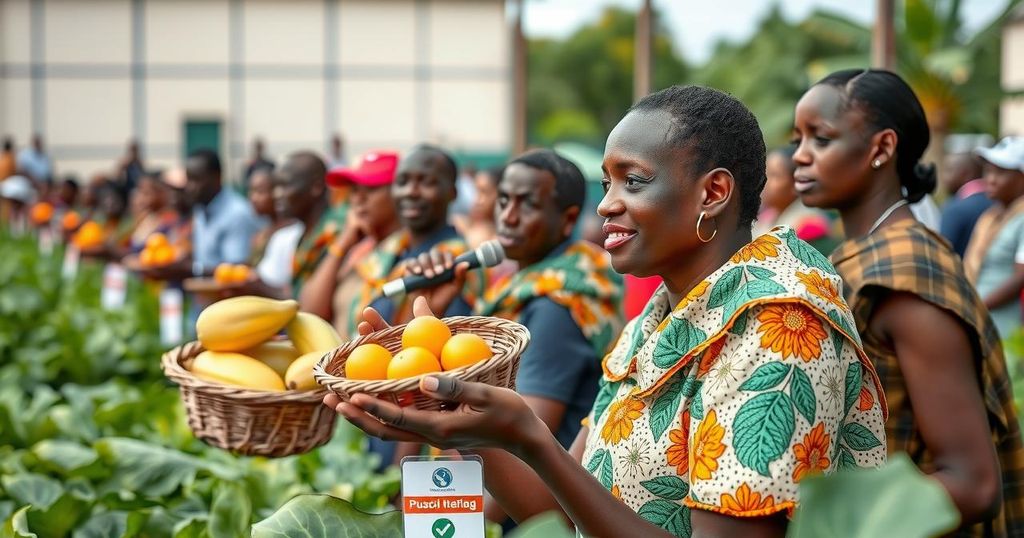The African Union summit in Uganda aims to develop sustainable agriculture strategies to enhance food security amid climate change challenges. Over 2,000 delegates discussed the urgent need for adaptive farming practices and a 10-year action plan for self-sufficiency. Rising global temperatures and food insecurity statistics highlight the critical need for collaborative efforts across African nations.
This week in Kampala, Uganda, a significant summit convened by the African Union (AU) gathered agriculture ministers and over 2,000 delegates from across Africa. The primary objective of this summit is to develop sustainable agriculture and food production systems in light of the urgent challenges posed by climate change. With the ongoing climate crisis resulting in extreme weather events, such as droughts and floods, which have led to soaring food prices, the ministers are tasked with finding adaptive strategies for Africa’s agricultural practices that incorporate modern technology.
The summit commenced on the 9th of January, alongside alarming reports from the European Union’s climate monitoring service regarding the unprecedented rise in global temperatures. According to Carlo Buontempo, the director of the Copernicus Climate Change Service, every month in 2024 registered as the hottest or second hottest for that month since records began. This alarming trend contributes to rising food insecurity, which has escalated from 512 million affected individuals in 2014 to over 790 million by 2021, as reported by the United Nations Conference on Trade and Development (UNCTAD).
During the opening discussions, Uganda’s Prime Minister, Robinah Nabbanja, emphasized the need for actionable policies and solutions within a decade-long framework that aims to bolster Africa’s food self-sufficiency. The drive for self-reliance in agricultural production is necessitated by the changing climatic conditions, evolving food preferences, increased conflicts, and the diminishing availability of arable land.
The summit is a response to the severe impacts of climate change on food security in Africa. As agricultural practices are disrupted by extreme weather patterns, there is an urgent need for countries in the continent to re-evaluate and adapt their agricultural strategies. The dramatic rise in food prices and the growing number of people facing food insecurity further highlight the need for immediate action and collaborations among African nations to secure the continent’s food production systems for the future.
The AU agriculture summit underscores the vital importance of addressing climate change in enhancing Africa’s food security. With rising global temperatures and escalating food insecurity statistics, the collaboration of African nations is essential in formulating effective agricultural policies. The call for a 10-year action plan as proposed by Prime Minister Robinah Nabbanja illustrates a commitment to achieving food self-sufficiency against a backdrop of evolving environmental and socio-economic challenges.
Original Source: northafricapost.com







